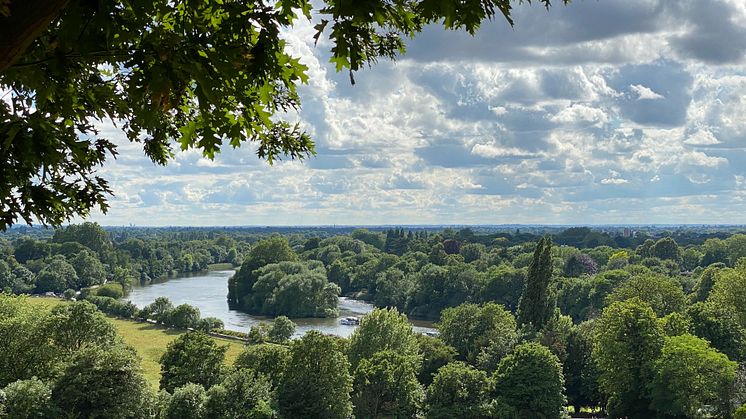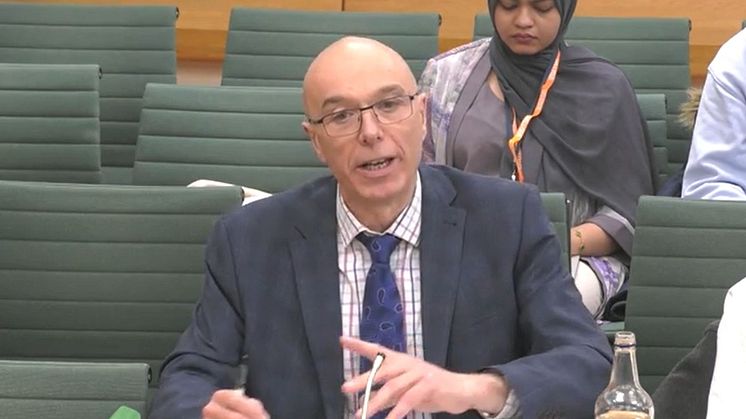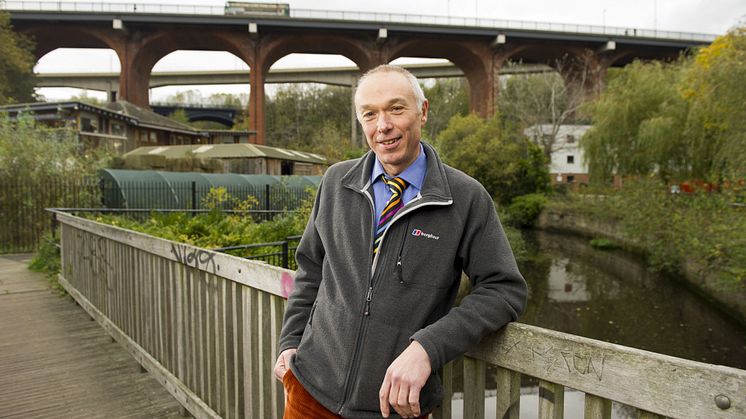
Press release -
Parliamentary briefing highlights benefits of Green Blue Infrastructure
The social, health and economic benefits of properly planned and managed green spaces have been highlighted in a report to parliament, compiled by environmental scientists from Northumbria University.
PhD researcher Matt Kirby and Professor Alister Scott examined academic research focussing on the impact of Green Blue Infrastructure (GBI) – green spaces and water features which have been designed to provide a range of multifunctional benefits. This includes green walls and roofs; trees in urban areas; sea, ponds, rivers and canals; sustainable drainage systems; and parks and woodlands.
One example of GBI in action is the Queen Elizabeth Olympic Park, designed and built for the 2012 London Olympic and Paralympic Games, which features sustainable flood management, biodiversity and allows users to experience a greater connection with nature.
Their report, Green Blue Infrastructure Impacts on Health and Wellbeing; A Rapid Evidence Assessment, will be distributed throughout parliament as part of the Research England funded Capabilities in Academic Policy Engagement (CAPE)project, of which Northumbria is one of five partner universities.
CAPE is working to strengthen engagement between academics and policy professionals – including providing decision makers in parliament with evidenced based research to support and inform their policy making.
The report has been published and distributed by the Parliamentary Office of Science & Technology, which provides parliamentarians with impartial, balanced and peer-reviewed briefings.
Matt Kirby joined Northumbria in 2020 through the ONE Planet doctoral training partnership, jointly run by Northumbria and Newcastle Universities and funded through the Natural and Environmental Research Council (NERC).
He and Professor Scott used state-of-the-art machine learning software EPPI-Reviewer to search for relevant existing academic research around GBI, allowing them to compile their findings more quickly than if the search had been carried out manually.
This is key when providing parliament with academic evidence on pressing issues when time is of the essence.
Speaking about the report Matt said: “Academic evidence isn’t usually easily embedded in policy making as it can be difficult to source and time consuming to compile, which is why approaches like rapid evidence synthesis is important in ensuring research is taken into consideration when making and scrutinising important policy decisions.
“It is widely accepted that green and blue spaces have a positive impact on people’s lives, but there hasn’t been a great deal of research carried out about the impact of different types of managed Green Blue Infrastructure on specific mental and physical health conditions.
“We now hope that further longitudinal research will be carried out into how specific GBI might benefit a particular area or demographic, and into the issue of social equality around new and existing developments, so that more people can experience the benefits.
“There also needs to be further exploration of the combined direct and indirect benefit of GBI, for example in extreme heat events GBI can used to offset the ‘urban heat island’ effect, which would improve people’s physical and mental wellbeing, but few studies examine these indirect impacts alongside direct pathways.”
Co-author Professor Alister Scott is one of the UK’s leading experts on nature and sustainable land use and was last year appointed as the sole special adviser to the House of Lords Select Committee investigating land use in England.
Speaking about the report he said: “All too often people see green spaces as a bolt on or luxury and a constraint on much needed development.
“The academic research amassed here shows green and blue infrastructure provides critical infrastructure for places and people, in effect representing a proactive natural health service and more which can help reduce local authority health burdens and improve productivity, regeneration, biodiversity and mitigate against climate change if planned effectively.
“We still need more detailed health data to complement the self-reported data that abounds, but decision makers need to use this intelligence to embed the value of green and blue infrastructure into their policy and decision making.”
Matt Kirby and Professor Scott are both members of Northumbria University’s Department of Geography and Environmental Sciences.
Photo credit: View from Richmond - Photo by Ian Thompson on Unsplash
Topics
Categories
UNIVERSITY OF THE YEAR 2022 (Times Higher Education Awards)
Northumbria is a research-intensive university that unlocks potential for all, changing lives regionally, nationally and internationally. Find out more about us at www.northumbria.ac.uk
--- Please contact media.communications@northumbria.ac.uk with any media enquiries or interview requests ---









